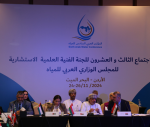You are here
Jordan’s gold
Sep 29,2014 - Last updated at Sep 29,2014
The ruckus regarding the alleged discovery of gold in Ajloun two weeks ago has ebbed, but did not die.
Unfortunately, such distrust and anger manifestly underscores the presence of a rentier mindset in the country, whereby the citizen expects welfare and gains without work or merit, and a government relies more on external inputs than on local productivity.
The formal and informal institutions of Jordan, which is not an oil producer/exporter yet, cannot continue to espouse such attitude as the economic cost is high and is getting higher.
The story of gold discovery immediately spread over the social networks. People started requesting a share. The amount of the gold was evaluated within minutes and the value was published at JD12 billion; some put it at a valued that would be enough to settle the total national debt (JD22 billion in 2014).
The government denied the news item. Unfortunately, the official response in response to the mounting racket, which was actually several stories, some conflicting with others and lacking consistency, served to flare rumours and elicit new expectations and accusations.
As is expected in such cases, neither side was satisfied, and the story can be expected to resurface.
But why would people believe that such vast treasures were discovered suddenly and why evaluate them so quickly when artefacts of historical significance like these would take months and expertise to evaluate?
The answer must be that people are seeking rent and this is one way to squeeze more rent of a government that says it is facing one of the worst times ever, given the state of the economy.
Strangely enough, the government was busy passing a new tax law that increases taxes on people at a time when the population growth has outpaced economic growth for four years.
Instead of attempting to come up with policies that stimulate growth, the government comes up with contractionary policies, hiking taxes, as it has done over the past two years.
In other words, the government is not working on generating greater economic activity because it knows that aid will come through to save the budget even if the economy contracts.
The government also has a rentier mindset.
Both people and government in the country are obviously rentier and refuse to work to generate income.
However, it is well-known that the standard of living is determined by the productivity of a state (the output of the economy per unit of labour and/or capital employed).
A high and rising standard of living for most or all the nation’s citizens can be sustained only by continued improvement of productivity, either by achieving higher productivity in existing businesses or through successful entry into higher productivity businesses.
The wealth of a nation and, as a result, its competitiveness, derives from the stock of the following seven types of capital: natural resources, financial resources, man-made resources, institutional capital, human capital, knowledge capital and cultural capital.
The last four make up the core of the creative economy, an environment where ideas become economic content (i.e., have value).
Books, plays, movies, inventions, discoveries, music, paintings, websites, blogs, etc. are all manifestations of the creative economy.
What is in the head of people, when properly nourished, protected and cultivated, gives a powerful competitive advantage, one where the smallness of the economy and lack of natural resources become a spur for creativity and a source of rising advantage.
Highly competitive countries achieve competitiveness with little and almost no natural resources. Some countries that have a relative abundance of natural resources are still underdeveloped, like Nigeria, for example.
A nation that believes its way to competitiveness is achieved by digging and selling its natural resources finds itself eventually little developed, which is synonymous with lack of competitiveness.
The economic literature abounds in examples of the “Dutch disease” — an abundance of natural resource that leads to wasted productivity and lack of development.
A competitive mindset and institutions that encourage and aid such a mindset will help create treasures and wealth for nations.
The true gold of a nation is not what had been deposited in its lands thousands of years ago.













